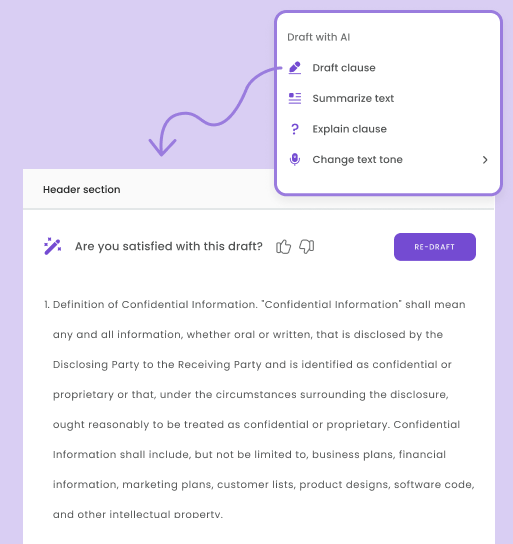These days, it seems like business automation is the best thing since sliced bread.
In some ways, it is.
With that being said, there are obvious benefits of business automation and not-so-obvious benefits of business automation.
You expect time savings and cost reductions. Those are table stakes.
But, the benefits go deeper than that.
This guide is for you if you’ve been on the fence about adopting business automation or need a bit more firepower to convince others on the team.
Let’s dive in.
1. Reduces Human Decision Fatigue
One of the ways business automation helps you is by cutting down on decision fatigue. Every day, you’re hit with a hundred tiny choices.
Approve this invoice, follow up with that lead, send this reminder email, and update that spreadsheet.
On their own, these decisions feel harmless. But by the time you’ve made 30 or 40 of them before lunch, your brain’s already starting to check out. That’s decision fatigue creeping in, and it silently wrecks your productivity.
When you automate these low-level, repetitive tasks, you’re essentially outsourcing all those micro-decisions to software.
The system can send the reminders, process the approvals, update the records, and flag anything that needs your attention.
Suddenly, you’re not wasting energy on “should I click this or that?” moments. Instead, you’re reserving mental fuel for the stuff that moves the needle, like strategy, problem-solving, and creative thinking.
Here’s the hidden perk most people don’t think about: fewer decisions mean better decisions. When your team isn’t mentally fried from juggling tiny, repetitive tasks, they’re less likely to make careless mistakes.
They’re sharper, more focused, and more confident in their choices. Over time, this compounds into a big competitive edge. Projects move faster, quality goes up, and your brain may feel lighter at the end of the day.
2. Improves Cross-Department Communication
One of the biggest time-wasters in many businesses is the endless stream of check-in meetings. Marketing needs to tell Sales what’s going on.
Sales needs an update from Finance. Operations is waiting on someone from IT. Before you know it, half the day is gone, and you’re still talking about work instead of doing it.
Business automation changes that by letting information flow automatically across departments.
When a workflow is set up to trigger updates, approvals, or notifications as soon as something happens, everyone who needs to know, knows.
For example, a new customer order can automatically notify Sales, update inventory for Operations, and create an invoice for Finance, all without a single “Can we hop on a call?” moment.
The hidden benefit is that communication becomes seamless without the usual middlemen or bottlenecks.
Fewer updates get lost in email threads, nobody is waiting around for someone to manually pass along information, and your team gets to skip the meetings that could have been an automated status update.
The result is a business that runs smoother, with less back-and-forth, and employees who can focus on work that produces results instead of spending their day in virtual rooms talking about it.
3. Strengthens Compliance and Audit Trails
Keeping up with compliance can feel like a constant chore, especially if your team is still relying on spreadsheets, emails, and sticky notes to track who approved what and when.
The problem is that when an audit or regulatory check pops up, everyone scrambles to piece together a trail of evidence. That panic usually ends in long nights and missing details.
Automation takes this headache off your plate by automatically logging every action, update, and approval as they happen. Every invoice sent, every approval granted, every change made in a workflow gets recorded without anyone lifting a finger.
Instead of trying to recreate your process after the fact, your compliance documentation is always being built quietly in the background.
The uncommon benefit is that when audits or regulatory checks do happen, you’re already prepared. There’s no last-minute hunt for documents or rushing to organize months of activity.
You can pull up a clear, timestamped trail of actions that shows regulators exactly what happened and when.
It not only saves stress but also builds trust, because your business comes across as organized and reliable without the frantic effort behind the scenes.
4. Uncovers Hidden Inefficiencies
One of the most surprising perks of business automation is how it shines a light on problems you didn’t even know existed.
When everything is done manually, small slowdowns tend to get buried in the day-to-day chaos. A delayed approval here and a misplaced document there all blends in until you only notice the impact when deadlines slip or customers start complaining.
Automation flips the script by tracking every step of a process automatically. Most automation tools come with built-in reporting and dashboards that show you exactly where things are moving smoothly and where they’re getting stuck.
Maybe you’ll discover that invoices sit in someone’s inbox for three days before approval, or that shipping slows down every Friday afternoon.
These patterns are almost invisible when you rely on manual updates, but automation makes the bottlenecks obvious.
The best part is that once you can see the problem clearly, you can then fix it. By uncovering hidden inefficiencies, you get a chance to streamline workflows, reassign responsibilities, or adjust timelines before they turn into bigger issues.
Over time, this not only saves hours of work but also creates a business that runs more predictably, which your team and your customers will notice.
5. Boosts Employee Morale in Non-Obvious Ways
Nobody shows up to work excited to spend hours on repetitive, mind-numbing tasks. Manually entering data, chasing approvals, or sending the same follow-up emails over and over isn’t exactly inspiring.
Over time, that kind of work eats away at motivation and makes employees feel like they’re just cogs in a machine.
Automation quietly fixes a lot of that by taking the boring stuff off everyone’s plate.
When systems handle data entry, send reminders, or move tasks along automatically, your team suddenly has more time for the work that actually feels meaningful.
Here’s the part most businesses overlook: when employees don’t have to constantly check in or get approvals for every little thing, they feel more trusted.
Automation handles the repetitive oversight, which means managers don’t have to micromanage, and employees get the space to own their work. That sense of independence goes a long way in boosting morale and reducing burnout.
The result? A happier team that’s not only more engaged but also more productive because they’re finally spending their time on tasks that truly matter.
6. Enhances Customer Experience Indirectly
When people think about automation improving customer experience, they usually picture chatbots or instant email replies.
The real magic often happens behind the scenes, in ways your customers may never see. Smooth back-end operations are what make your business feel effortless from the outside, and automation is what keeps everything moving without hiccups.
For example, automated order processing can kick off faster shipping, automated invoicing keeps billing clean and error-free, and inventory updates happen in real time.
None of this is flashy to the customer, but the impact is huge. They get their orders on time, their invoices are accurate, and their interactions with your business feel reliable.
The hidden benefit is that customers notice consistency, even if they can’t pinpoint why your business feels easier to work with than others.
Reliability builds trust, and trust keeps people coming back. Over time, this kind of invisible automation gives you a reputation for smooth service without you having to overextend your team or constantly put out fires.
7. Future-Proofs the Business for Scaling
Scaling a business sounds exciting, but in reality, it can turn into chaos if your processes aren’t ready for it.
When everything is manual, even a small spike in orders, clients, or internal requests can overwhelm your team. Tasks slip through the cracks, deadlines get missed, and what used to be a well-oiled machine suddenly feels like it’s held together with duct tape.
Automation changes that by giving your processes the flexibility to handle more volume without breaking.
Once repetitive tasks like data entry, approvals, order processing, and follow-ups are automated, an increase in workload doesn’t automatically mean an increase in stress.
Instead of hiring a new person every time demand jumps, your existing team can handle more with the same effort because the system is doing the heavy lifting.
The uncommon benefit here is that automation doesn’t just make scaling possible, it makes it sustainable.
You can take on more customers, ship more products, or handle more invoices without sacrificing quality or burning out your staff.
And when your business does grow, your systems are already in place to support it, so you’re not scrambling to rebuild your processes in the middle of that growth.
Conclusion
There are many benefits of business automation. The obvious ones are what make you start using it, but the hidden ones are what make you stay.
IF you’ve been on the fence about business automation, this guide is your wake-up call.
More and more businesses of all sizes will continue you adopt business automation. Don’t get left behind.
If you’re looking to automate your document processes, be sure to take a look at DoxFlowy.




